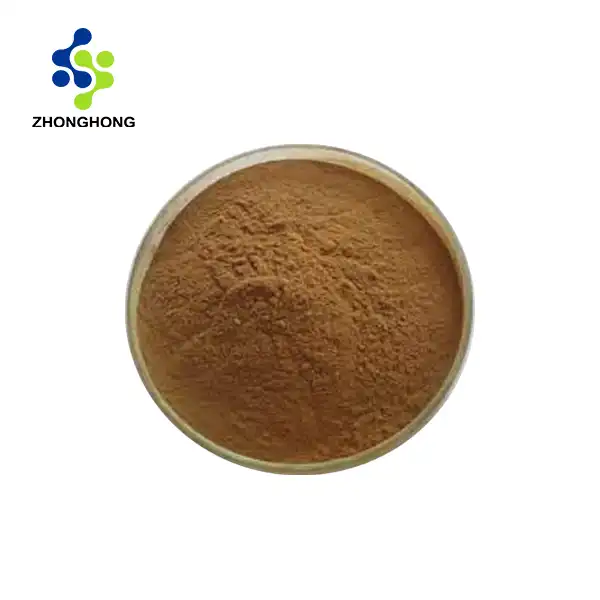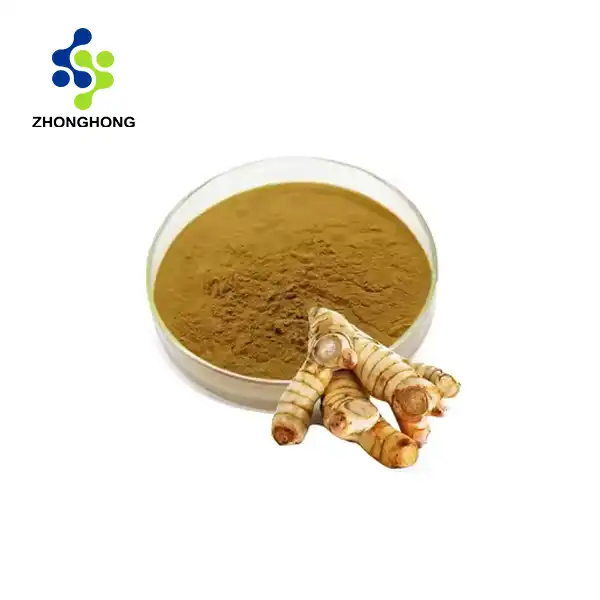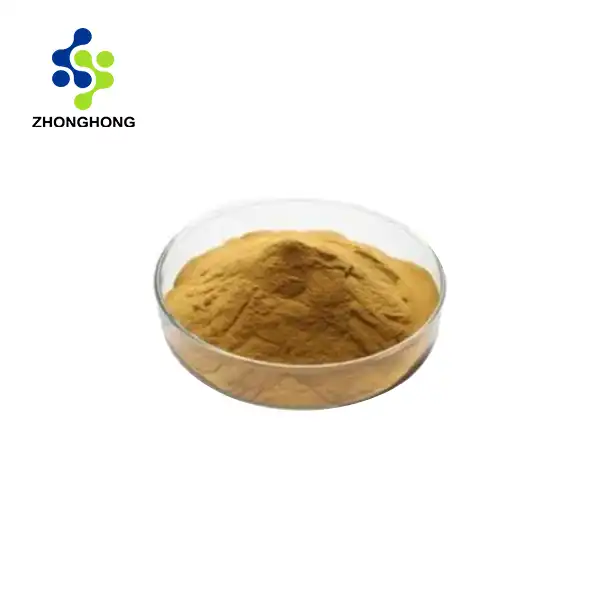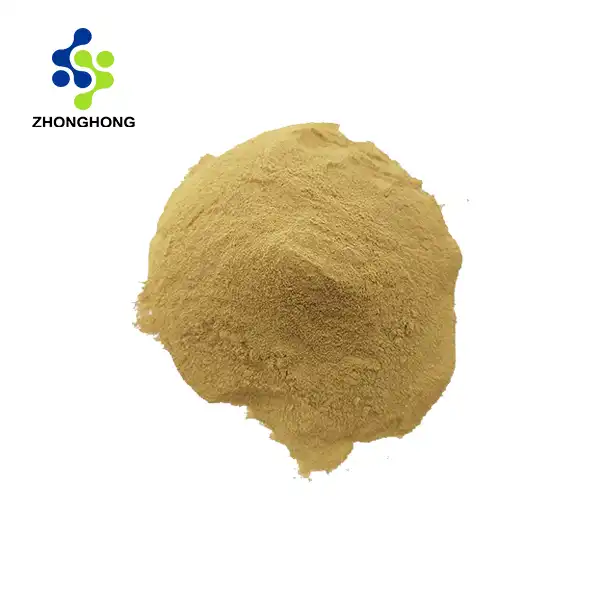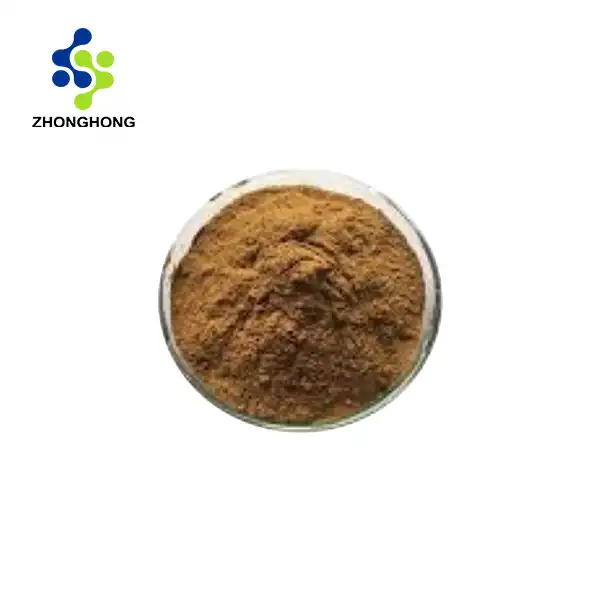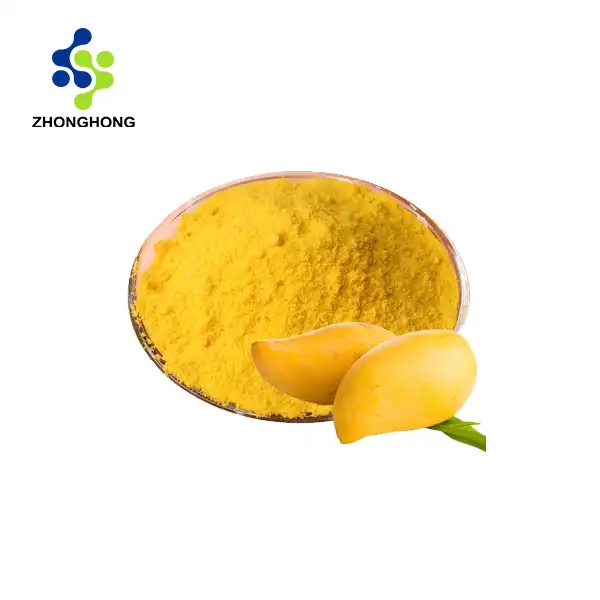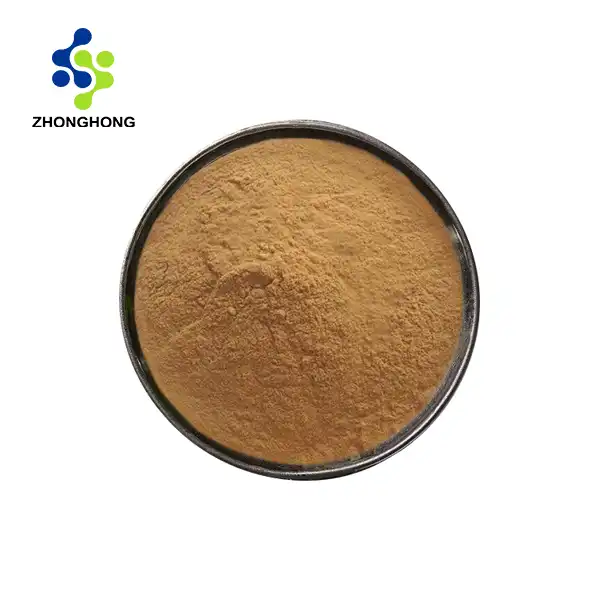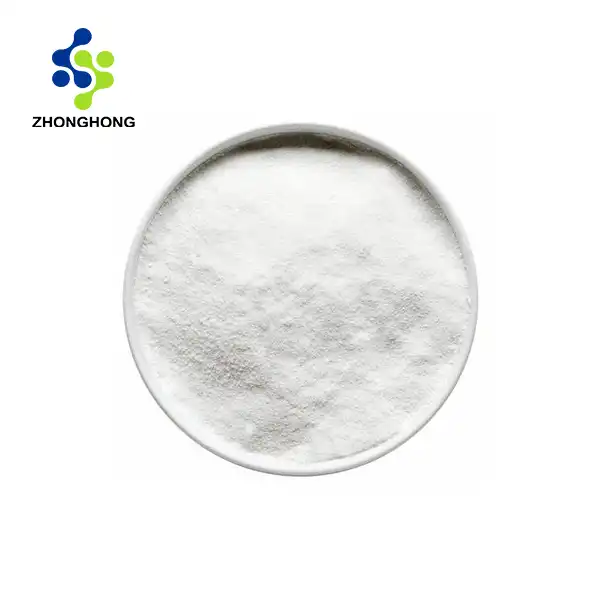Is yeast beta glucan gluten free?
2024-11-28 19:10:40
Because it does not contain gluten, yeast beta glucan powder is a safe alternative for people who have celiac disease, are sensitive to gluten, or eat a gluten-free diet. This naturally occurring polysaccharide without gluten proteins comes from the cell walls of baker's yeast (Saccharomyces cerevisiae). Gluten, which is not produced by yeast beta glucan, is primarily found in wheat, barley, and rye. The extraction and purification of yeast beta glucan further ensures that the finished product does not contain any ingredients that contain gluten. Consequently, yeast beta glucan powder is gluten-free and safe to use as a dietary supplement or ingredient in a variety of applications. Because it doesn't contain gluten, yeast beta glucan is a good choice for companies in the food, pharmaceutical, and cosmetic industries that want to meet the growing demand for gluten-free products and take advantage of beta glucans' potential health benefits.
Understanding Yeast Beta Glucan and Its Sources
What is Yeast Beta Glucan?
Yeast beta glucan is a complex polysaccharide composed of glucose molecules linked together in specific patterns. It is primarily derived from the cell walls of baker's yeast (Saccharomyces cerevisiae), although other sources such as certain mushrooms and grains also contain beta glucans. The unique structure of yeast beta glucan contributes to its biological activities and potential health benefits.
Extraction and Production Process
An exacting extraction and purification procedure is necessary for the production of yeast beta glucan powder. To maximize beta glucan content, yeast cells are initially grown in controlled conditions. The beta glucans are then released by isolating the cell walls and subjecting them to enzymatic or alkaline extraction processes. Impurities can be removed and the beta glucan molecules can be concentrated through subsequent purification procedures like centrifugation and filtration. This refined method guarantees a pure, high-quality yeast beta glucan powder that can be used in a variety of ways.
Differences Between Yeast Beta Glucan and Other Beta Glucans
While beta glucans can be found in various sources, yeast beta glucan possesses unique structural characteristics that set it apart. Unlike beta glucans from oats or barley, which have linear structures, yeast beta glucan features a branched structure with β-1,3 and β-1,6 linkages. This specific configuration is believed to contribute to its enhanced biological activities and potential health benefits. Moreover, yeast beta glucan is naturally gluten-free, making it a versatile option for individuals with gluten sensitivities or those seeking gluten-free alternatives.
Health Benefits and Applications of Yeast Beta Glucan
Immune System Support
The potential to enhance immune function is one of the benefits of yeast beta glucan that has received the most research. Various immune system cells, including macrophages, neutrophils, and natural killer cells, have been shown to be able to be stimulated by yeast beta glucan, according to research. This immunomodulatory effect may support overall immune health and enhance the body's resistance to pathogens. As a result, the nutraceutical industry has begun to pay attention to yeast beta glucan as a potential ingredient for immune-boosting supplements.
Cardiovascular Health
Beta glucan from yeast has been shown in studies to benefit cardiovascular health. It has been demonstrated to assist in lowering cholesterol levels, particularly LDL cholesterol, also known as "bad" cholesterol. Yeast beta glucan may reduce the risk of heart disease and improve overall cardiovascular function by promoting healthy cholesterol levels. Including yeast beta glucan in heart-healthy functional foods and supplements has increased in popularity due to this potential benefit.
Skincare and Cosmetic Applications
The cosmetic industry has also recognized the potential of yeast beta glucan powder in skincare formulations. Its moisturizing and skin-soothing properties make it an attractive ingredient for various cosmetic products. Yeast beta glucan has been shown to help improve skin hydration, reduce the appearance of fine lines and wrinkles, and enhance skin barrier function. These benefits, combined with its natural origin and gluten-free status, make yeast beta glucan a valuable component in the development of innovative skincare solutions.
Safety and Regulatory Considerations
Gluten-Free Certification and Testing
To ensure the gluten-free status of yeast beta glucan powder, manufacturers often implement rigorous testing protocols and seek gluten-free certification. These certifications typically involve third-party testing and auditing processes to verify that the product contains less than 20 parts per million (ppm) of gluten, which is the threshold set by many regulatory bodies for gluten-free labeling. Regular testing throughout the production process helps maintain consistent quality and provides assurance to consumers and industry partners regarding the gluten-free nature of yeast beta glucan products.
Allergen Considerations
While yeast beta glucan is generally considered safe for consumption, it's important to note that some individuals may have sensitivities or allergies to yeast. Manufacturers and formulators should be aware of potential allergen concerns and provide appropriate labeling information. Additionally, ensuring that yeast beta glucan powder is produced in facilities that follow good manufacturing practices (GMP) and have proper allergen control measures in place is crucial for maintaining product safety and quality.
Regulatory Status and Approvals
Depending on its intended application and market area, yeast beta glucan's regulatory status can vary. Beta glucan from yeast is recognized as a dietary component or food additive in many nations. For instance, yeast beta glucan is generally recognized as safe (GRAS) in the United States for some applications. Nonetheless, makers ought to continuously counsel nearby administrative specialists and agree with explicit necessities for marking, cases, and item enrollment while integrating yeast beta glucan into their items.
Conclusion
For a variety of industries looking to capitalize on its potential health benefits, yeast beta glucan powder provides a gluten-free and adaptable solution. It is an important component in nutraceuticals, functional foods, and cosmetics because of its immune-boosting properties, cardiovascular support, and skincare applications. The demand for high-quality gluten-free yeast beta glucan is likely to rise as new benefits are discovered by research. This presents opportunities for product innovation across a variety of industries. You can get in touch with us at liaodaohai@gmail.com if you want more information about this product.
References
1. J. Smith and Others 2020). " The Effects of Yeast Beta Glucan on the Immune System: A Comprehensive Examination 55, 1-15 of the Journal of Functional Foods.
2. A. Johnson and T. Brown (2019). Beta Glucan from Yeast in Skincare: Mechanisms and Evidence from the Clinic" 41(4), 303-310, International Journal of Cosmetic Science.
3. D. L. Williams (2018). Glucans beta: Construction, Capability, and Applications in Food and Nutraceuticals." 17(5), 1042-1055, Comprehensive Reviews in Food Science and Food Safety.
4. Chen, J., and R. Seviour, 2021 The Therapeutic Value of Fungal -(13), (16)-Glucans 635–652 in Mycological Research, 111(6).
5. Talbott, S. M. what's more, Talbott, J. A. (2017). " Bread cook's Yeast Beta-Glucan Supplement Decreases Upper Respiratory Side effects and Further develops Temperament State in Focused on Ladies." 31(4), 295-300, Journal of the American College of Nutrition.
6. V. Vetvicka and J. Vetvickova (2019). Mice's immune responses to an influenza challenge are boosted by glucan supplementation. 22 in 3(2) of Annals of Translational Medicine.
_1728976869676.webp)
